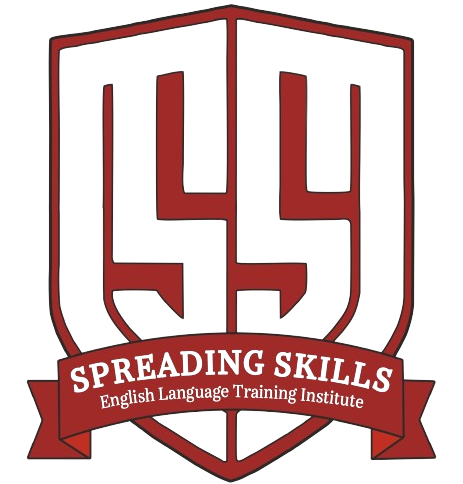Studying Abroad in 2025: A Gateway to Global Opportunities with Our Institute
The world of education is evolving rapidly, and with it, the opportunities for students seeking international learning experiences. As we move into 2025, studying abroad has become not just an academic pursuit but a transformative experience that shapes personal, professional, and cultural growth. Whether you’re considering studying abroad for a semester, a year, or even an entire degree program, the journey promises to be one of excitement, challenges, and opportunities.
At Spreading Skills English Language Institute, we understand that studying abroad can be a life-changing experience. That’s why we don’t just focus on language skills; we also offer comprehensive study abroad programs to help you achieve your academic and professional dreams globally.
1. Why Study Abroad in 2025?
Studying abroad offers a variety of benefits that extend beyond the classroom. In 2025, the reasons to embark on this global adventure have never been more compelling.
A Global Network: With the world becoming more interconnected, having international experience can give you a competitive edge in the job market. Employers are increasingly seeking candidates with diverse cultural perspectives, problem-solving abilities, and adaptability. Studying abroad in 2025 enables you to expand your professional network globally, giving you access to opportunities you might not otherwise encounter.
Cultural Exposure: As borders blur and the world becomes more digital, understanding different cultures is crucial for both personal and professional growth. Immersing yourself in a new culture through study abroad programs will broaden your worldview and help you develop empathy, communication skills, and a deeper appreciation for global diversity.
Academic Excellence: Many universities abroad offer cutting-edge research opportunities, access to world-renowned professors, and innovative academic programs. In 2025, the global landscape of higher education is more dynamic than ever. From AI-driven courses to interdisciplinary programs, studying abroad allows you to engage with diverse academic philosophies that may not be available in your home country.
2. The Role of Spreading Skills English Language Institute
At Spreading Skills English Language Institute, we recognize that proficiency in the English language is a vital tool for success when studying abroad. As part of our mission to provide high-quality education, we offer English language programs tailored specifically for students aiming to study abroad.
Our specialized programs are designed to help students gain the language skills necessary to excel in their studies, navigate daily life in English-speaking countries, and communicate effectively in a variety of professional environments. We focus on practical language use, academic English, and cultural understanding to ensure that you’re not only fluent in the language but also prepared to thrive in your international academic journey.
Our Study Abroad Programs:
In addition to our language courses, Spreading Skills offers bespoke study abroad programs that cater to the needs of international students. These programs provide you with the tools, support, and guidance necessary to choose the right university, apply for your visa, and adjust to life in a new country. Our partnerships with top universities around the world open doors for students to pursue their degrees or engage in short-term study abroad programs.
3. Top Destinations for Studying Abroad in 2025
Choosing the right destination is key to making your study abroad experience a success. Here are some of the top countries and cities that are shaping the global educational landscape in 2025:
1. Canada: Known for its diversity, quality of life, and excellent universities, Canada is a top choice for students. Institutions such as the University of Toronto, McGill University, and the University of British Columbia offer world-class education and opportunities for international students.
2. Germany: For students interested in STEM, humanities, or social sciences, Germany is a prime destination. Many public universities offer low or no tuition fees, making it an affordable option for international students. Germany also has a rich cultural heritage and a strong economy, offering plenty of internship opportunities.
3. Australia: Australia remains a popular destination for international students, thanks to its high-quality institutions, beautiful landscapes, and multicultural environment. Sydney, Melbourne, and Brisbane are home to some of the country’s best universities, such as the University of Melbourne and the Australian National University.
4. The United Kingdom: Despite Brexit, the UK continues to be a leader in higher education. Universities such as Oxford, Cambridge, and Imperial College London are world-renowned for their academic rigor and research opportunities.
5. South Korea: With its thriving technology sector, South Korea has become a hotspot for students interested in fields like computer science, engineering, and design. Seoul is a dynamic and modern city that combines tradition with innovation.
4. What to Consider Before Studying Abroad
While studying abroad is an exciting prospect, there are some important factors to keep in mind:
1. Financial Planning: Studying abroad can be costly, especially when considering tuition, accommodation, travel, and living expenses. However, many scholarships, grants, and financial aid options are available. Research financial options thoroughly and explore study abroad-specific scholarships from universities and governments.
2. Language Barriers: While many universities offer programs in English, some countries require proficiency in their native language. Consider taking a language course before you depart to ensure you can communicate effectively and navigate daily life with ease. At Spreading Skills, we provide tailored English language courses to ensure you’re well-prepared for your time abroad.
3. Health and Safety: Always check with your destination country’s health and safety guidelines. In 2025, many institutions and governments are still focused on providing health and safety measures in light of the global pandemic. Ensure you have adequate health insurance and understand any travel or visa restrictions.
4. Cultural Adjustment: Moving to a new country often means adjusting to a new culture. While this can be one of the most rewarding aspects of studying abroad, it can also be challenging. Be open to new experiences, and be patient with yourself as you navigate the transition.
5. The Future of Study Abroad Programs in 2025
As we look ahead to 2025, the landscape of studying abroad continues to evolve. Institutions are increasingly offering virtual exchange programs, allowing students to collaborate with peers from around the world without leaving their home countries. This is making global learning experiences more accessible to students who might not have the resources to study abroad physically.
Moreover, as the world adapts to post-pandemic realities, many institutions are working toward making study abroad experiences more sustainable. From eco-friendly campuses to green travel options, the future of study abroad is looking both exciting and environmentally conscious.
Conclusion
Studying abroad in 2025 is more than just an academic adventure—it’s an opportunity to broaden your horizon, enhance your skills, and build connections that will last a lifetime. Whether you’re drawn to the global job market, the desire to experience new cultures, or the academic opportunities that await, the world is more accessible than ever.
At Spreading Skills English Language Institute, we are committed to helping you achieve your study abroad goals by providing top-notch language education and personalized support every step of the way. With our help, you’ll be ready to step into your future with the skills, confidence, and connections needed to succeed.
So, pack your bags, open your mind, and get ready to explore the world beyond the classroom—your adventure awaits!
 When we talk about Indian food, the first thing that hits us is the tadka, the aroma, the flavour, and of course – the masale! Every Indian kitchen is incomplete without its stash of colorful, fragrant spices. But ever wondered what these spices are called in English?
When we talk about Indian food, the first thing that hits us is the tadka, the aroma, the flavour, and of course – the masale! Every Indian kitchen is incomplete without its stash of colorful, fragrant spices. But ever wondered what these spices are called in English?
 ELTS in 2025.
ELTS in 2025.